-
TrackoBit
Manage commercial vehicles with the new-age Fleet Management Software
TrackoBit -
TrackoField
Streamline your scattered workforce with Field Force Management Software
TrackoField -
Features Resources
-
Blog
Carefully curated articles to update you on industrial trends. -
White Paper
Insightful papers and analysis on essential subject matters. -
Glossary
Explore an alphabetical list of relevant industry terms. -
What’s New
Get TrackoBit & TrackoField monthly updates here. -
Case Study
Explore the cases we solved with our diverse solutions. -
Comparisons
Compare platforms, features, and pricing to find your best fit.
-
About Us
Get to know TrackoBit: our team, ethos, values, and vision. -
Careers
Join the most dynamic cult of coders, creatives and changemakers. -
Tech Support
Learn about our technical support team and services in detail. -
Events
Check out the exhibitions where we left our marks and conquered. -
Contact Us
Connect with us and let us know how we can be of service.
How AI Is Accelerating the Future of Automotive Industry
- Author:Tithi Agarwal
- Read Time:5 min
- Published:
- Last Update: December 18, 2025
Table of Contents
Toggle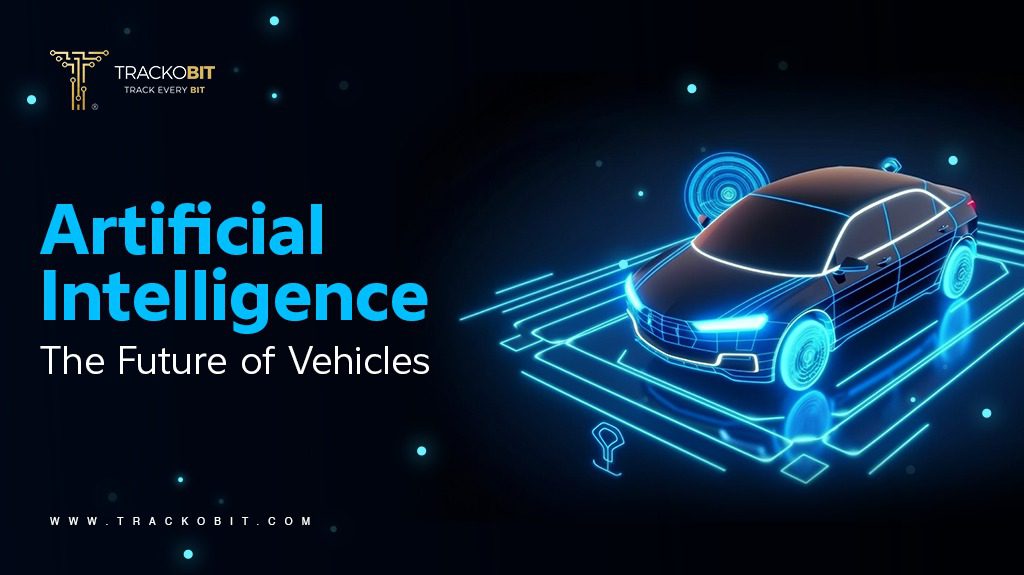
AI is steering the automotive industry towards an exciting future, empowering self-driving dreams, fortifying safety, foreseeing vehicle maintenance, and championing eco-friendliness.
Table of Contents
ToggleAI has been making rounds in almost every industry on this planet. It is revolutionising the way industries work. AI or Artificial Intelligence is a wide-ranging tool that enables people to rethink how they integrate information, analyse data, and use the resulting insights to improve decision-making.
Like all those Star Trek movies that we grew up watching, seeing those autonomous vehicles going left and right without human interference does not seem like a far-fledged dream now! Vehicles are now quickly adopting AI as it is helping them reduce:
- Accidents
- Fuel consumption
- On road time
- Carbon footprints
Keep scrolling down for more exciting information on the merger between the automotive industry and AI.
Artificial Intelligence (AI) in the Automotive Industry
Artificial Intelligence and Data Analytics innovations propel transportation, logistics companies and, most importantly, vehicle makers/manufacturers into a new league of digitally transformed, data-driven business powerhouses.
With innovations in vehicle connectivity, autonomy, and electrification, AI and its application are making a significant moment in future mobility, allowing vehicles to sense the needs of the drivers. AI integration into automobiles ensures safety assistance in locating destinations, stops, and journeys.
Based on recent industry estimates, artificial intelligence in the automotive sector is predicted to grow at a 36.2% compound annual growth rate (CAGR) between 2020 and 2030, from USD 2.49 billion in 2019.
AI, IoT and ML are extensively fulfilling the transportation industry requirements, whether for the users, drivers, passengers or developing autonomous and connected vehicles. Multiple applications include driverless vehicles, fleet management, in-vehicle driver assistance, and improved vehicle diagnostics services for aiding vehicle inspection or insurance.
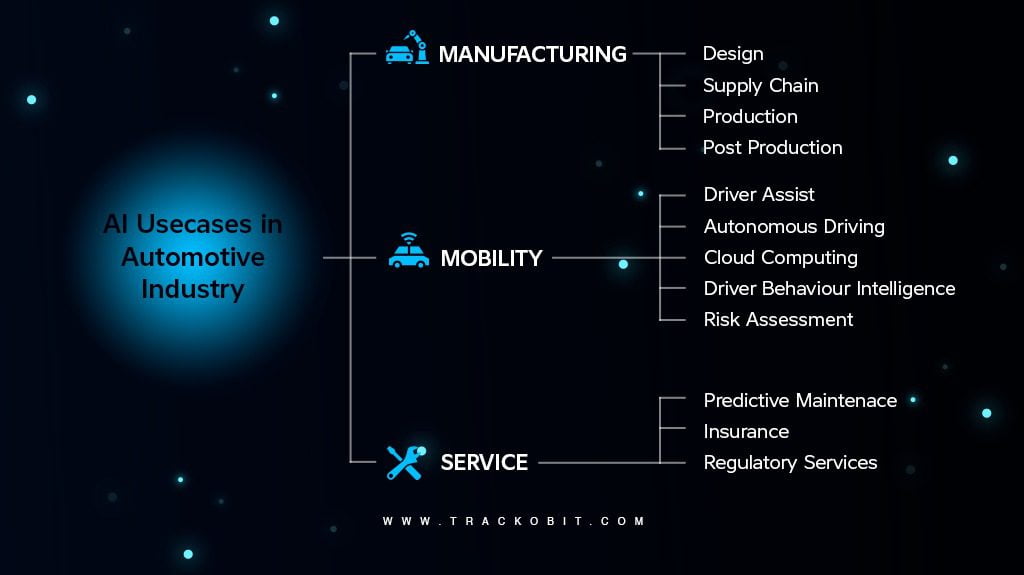
AI and Vehicles- Super Solid Pairing
AI-Powered Autonomous Driving
Let us begin with addressing the elephant in the room – Self-driving vehicles.
AI-powered autonomous driving has transformed from a sci-fi dream into reality.
Autonomous vehicles (AV) are equipped with various sensors such as cameras, LiDar and ultrasonic sensors. Combining these many sensors allows AI algorithms to process vast data in real-time. This allows AV to navigate roads, avoid obstacles and react to dynamic traffic conditions.
Recently, Tesla Engineers introduced Vector Space, which captures a three-dimensional view to sense the environment via eight cameras installed in the vehicles. Then, the data from Vector Space is processed through AI algorithms called Neural Net Planner, which controls the vehicle’s routing, behaviour, and trajectory to proactively allow the vehicles to choose the optimal course of action.
Enhanced Safety and Security
A combination of AI and Advanced Driver Assistance Systems (ADAS) also enhances the safety of the vehicles and drivers. According to the National Highway Traffic Safety Administration (NHTSA), 94% of serious accidents are caused by human error. ADAS technologies powered by AI, such as automatic emergency braking and lane-keeping assistance, can reduce accidents by up to 40%.
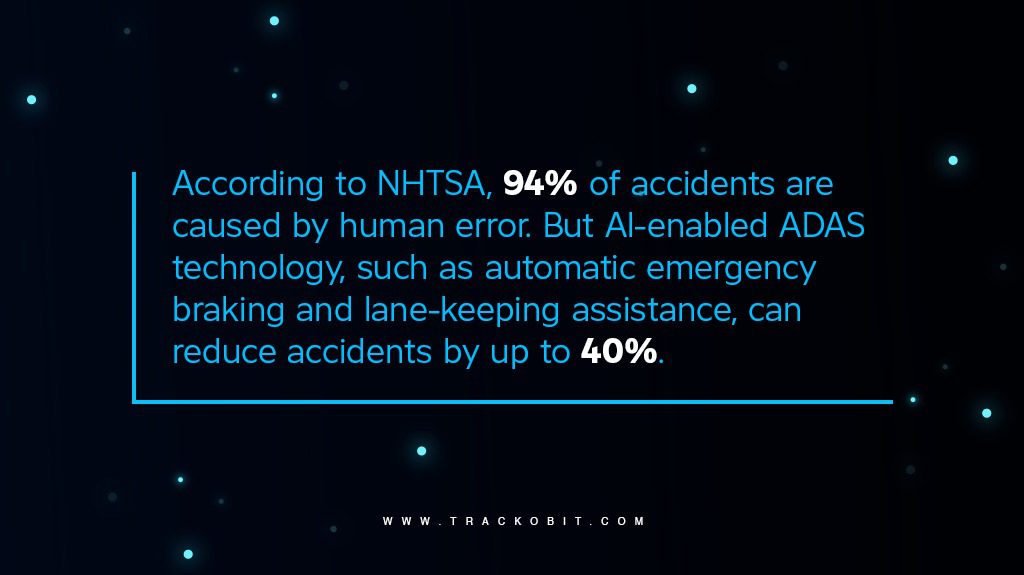
AI and ADAS can detect potential hazards, issue warnings and even intervene to prevent accidents. AI algorithms analyse real-time data from the integrated sensor’s camera in the vehicles.
Predictive Maintenance
With AI, predictive maintenance has become essential in the automotive industry. Machine learning algorithms excel at recognising complex patterns in large datasets, which further helps predict vehicle failures accurately. With all the data gathered from multiple sensors and embedded systems in real time. The data is analysed to create a baseline of normal behaviour for each vehicle.
The AI algorithms continuously compare new data to the established baseline. The system raises alerts whenever any anomaly is detected, indicating the need for action. Over time, AI can recognise patterns that lead to specific failures. By leveraging historical data and analysing trends, the system can successfully predict when a component will likely fail or need maintenance.
This helps with:
- Cost Saving
- Enhanced Safety
- Increased Vehicle Uptime
- Improved Customer Service
- Extended Vehicle Lifespan
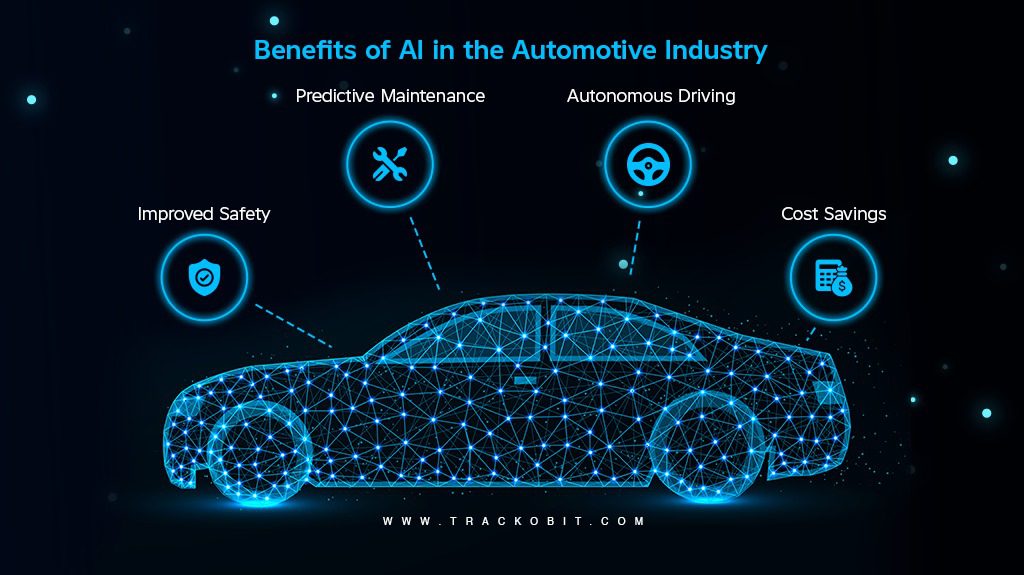
Environmental Impact
AI and EV both are taking firm stances in the automotive industry. AI, along with electric vehicles (EV), is bringing forth several benefits, but most importantly, it is helping maintain the green of the environment.
Pioneers of electric mobility as a service (eMaaS) have moved from preventive maintenance regime to predictive maintenance with data analytics and AI/ML to accelerate EV lifecycle management. This cutting-edge mechanism saves costs and makes EV adoption more affordable and easier for fleet owners.
AI algorithms can analyse data from various sensors and sources to fine-tune engine performance. This includes optimising the air-fuel mixture, ignition timing, and valve timing in internal combustion engines.
AI plays a vital role in reducing harmful emissions from vehicles. It can make real-time adjustments to minimise emissions by continuously monitoring exhaust gases and engine parameters. For instance, AI can control exhaust gas recirculation (EGR) and selective catalytic reduction (SCR) systems in diesel engines to reduce nitrogen oxide emissions.
In-Car Assistance; Going Beyond Alexas’ and Siris’
Connectivity is transforming transportation. Moving it away from a product-oriented approach to a customer-centric business approach for personalised and digitally enhanced experiences. Vehicles have now become devices on wheels.
A mobility assistance platform based on conventional AI allows drivers to talk to the vehicle in their natural language, control vehicle features and access information. No, this is not similar to Alexa, Siri or Google Assistant; the automakers focus on developing and integrating their voice assistants to cater to the consumers’ need for a digitally personalised experience.
Vehicles from the Future…
With so much advancement in technology, AI, no doubt, is assisting vehicle manufacturers and users in optimising the operations and usage of automobiles. It is adding new dimensions to the industry and customer experience, helping them re-imagine their services. No more struggling to put together data.
TrackoBit is an AI-based vehicle tracking software that is helping companies elevate their vehicle monitoring and maintenance effortlessly. Solutions like video telematics, ADAS, predictive maintenance and more are all possible with TrackoBit.
Tithi Agarwal is an established content marketing specialist with years of experience in Telematics and the SaaS domain. With a strong background in literature and industrial expertise in technical wr... Read More
Related Blogs
-
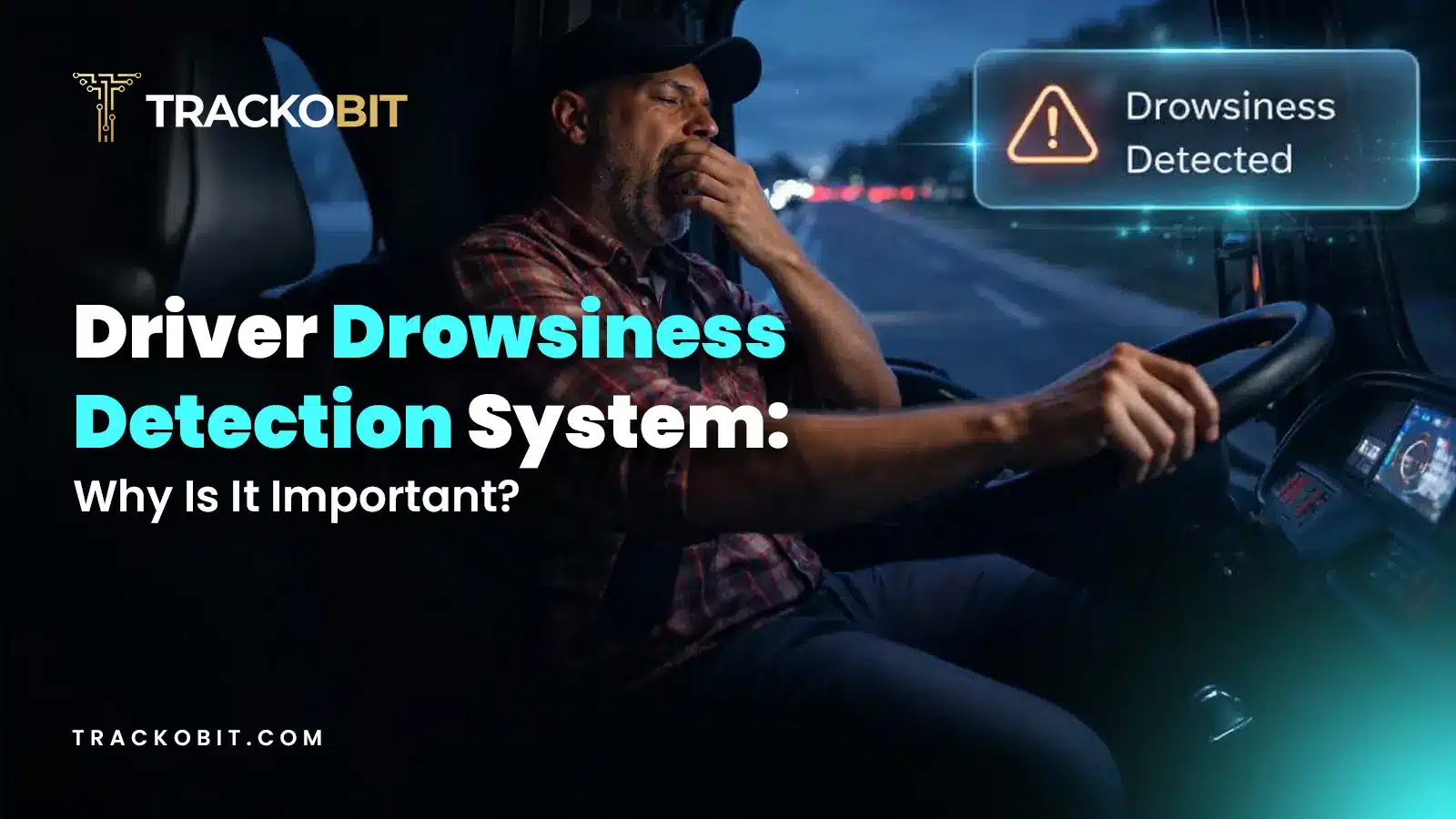
Why is Driver Drowsiness Detection System Important for Fleet Management?
Shemanti Ghosh February 4, 2026A driver drowsiness detection system is critical for fleet management. It helps prevent fatigue-related accidents and reduces operational risks through…
-
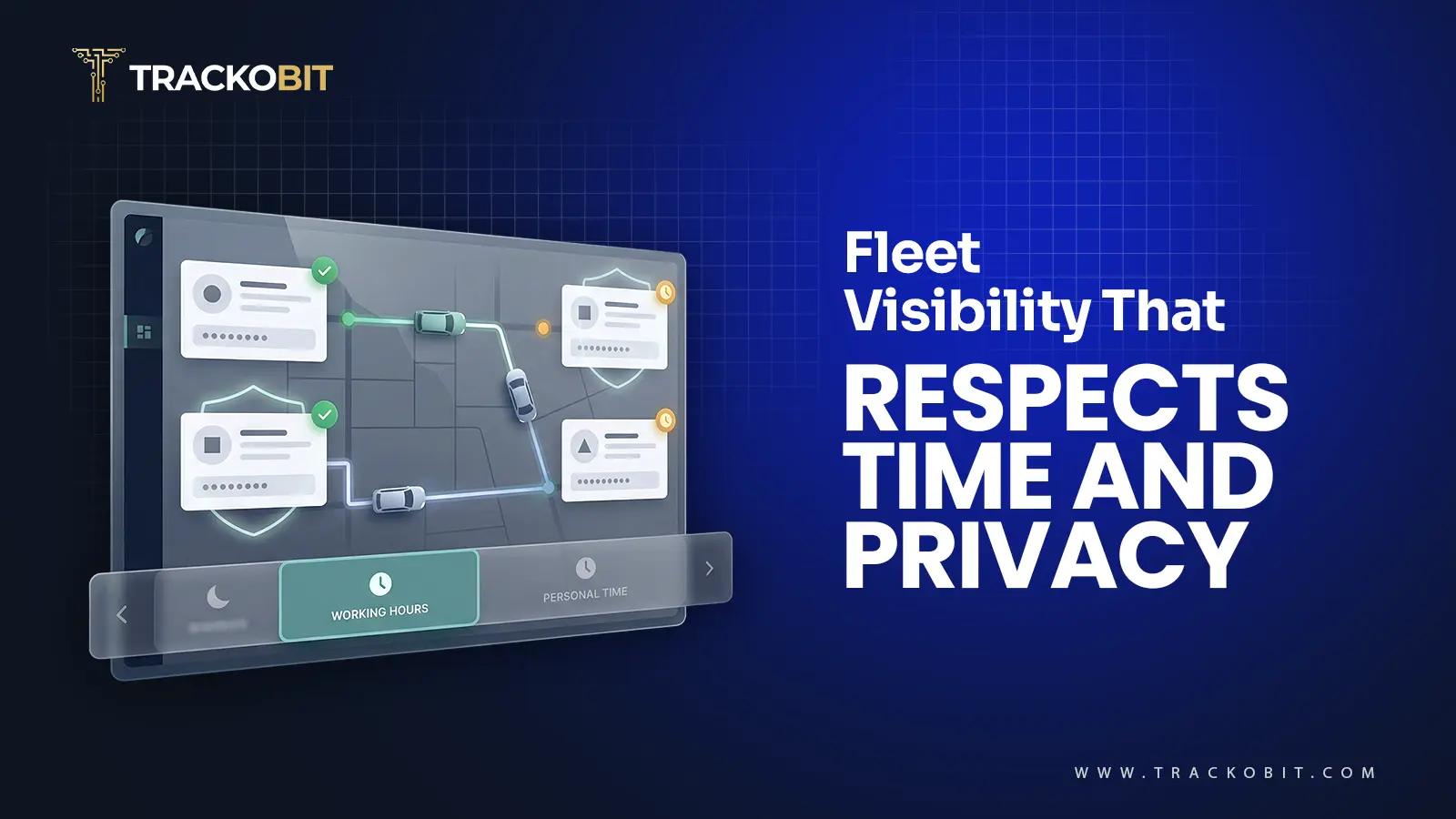
When Tracking Needs a Clock: Rethinking Fleet Visibility
Tithi Agarwal December 24, 2025Read on to understand why fleet tracking works better when it follows working hours. Because visibility should support operations, not…
-
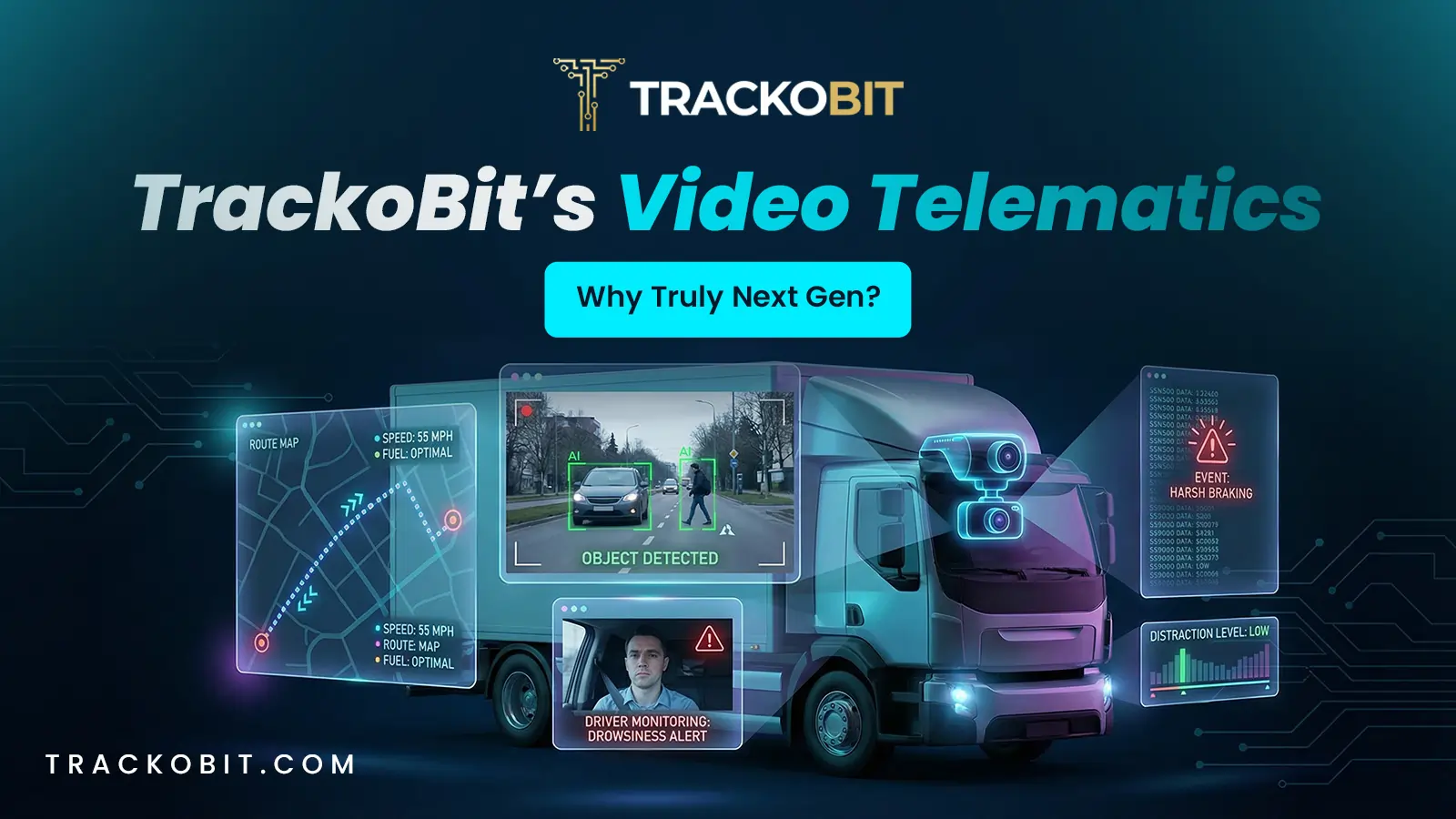
What Makes TrackoBit’s Video Telematics Software Truly Next-Gen?
Shemanti Ghosh December 17, 2025TrackoBit’s video telematics software blends smart video intelligence with full server control. The result? Superior fleet reliability and safety.
-
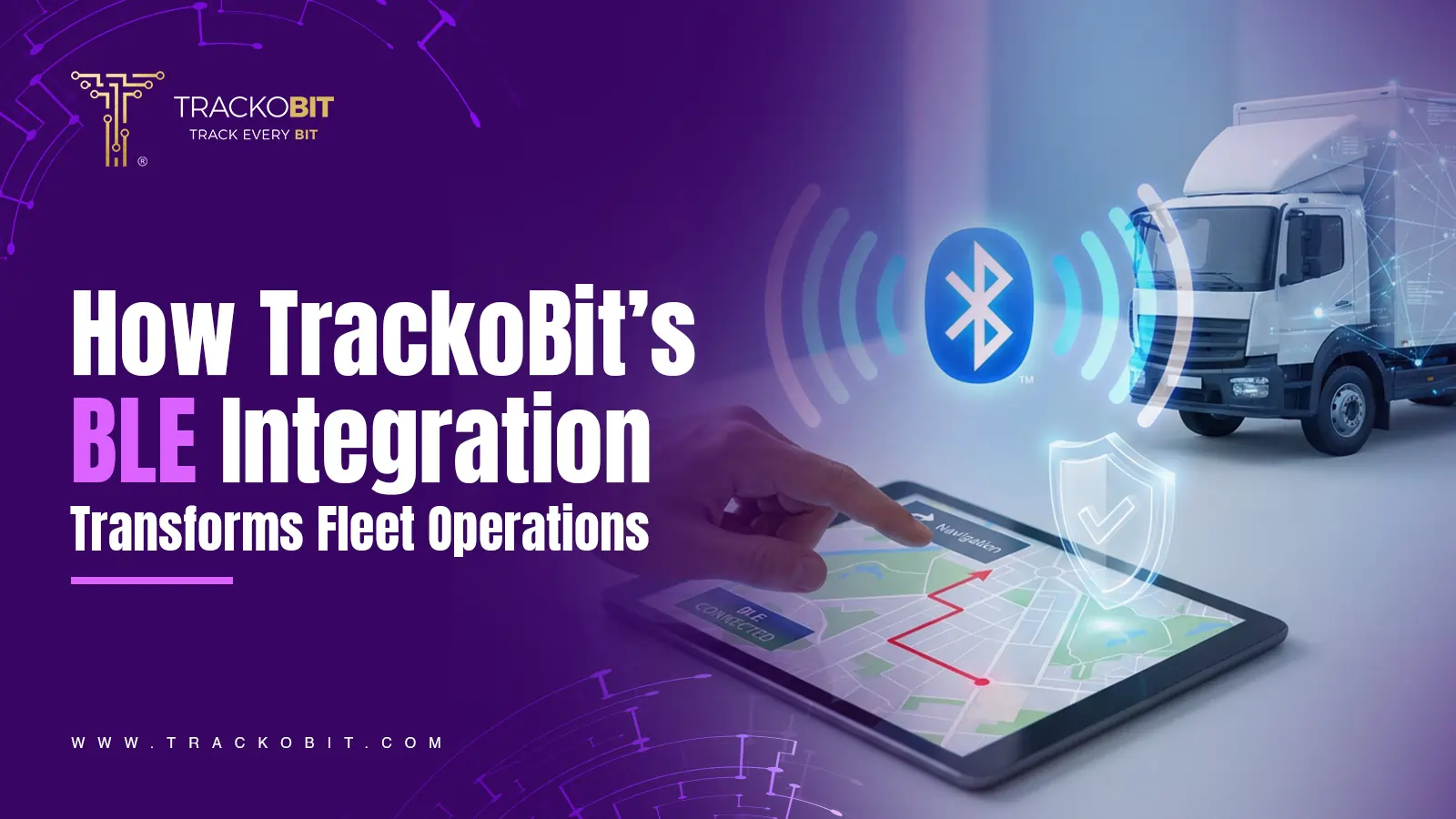
Plug, Pair, Perform TrackoBit Introduces BLE Sensor Integration
Tithi Agarwal November 26, 2025TrackoBit’s BLE Sensor Integration enables wireless, real-time monitoring with faster installs and accurate insights. It improves fleet efficiency, visibility, and…

Subscribe for weekly tips to optimize your fleet’s potential!
Your inbox awaits a welcome email. Stay tuned for the latest blog updates & expert insights.
"While you're here, dive into some more reads or grab quick bites from our social platforms!"Stay Updated on tech, telematics and mobility. Don't miss out on the latest in the industry.
We use cookies to enhance and personalize your browsing experience. By continuing to use our website, you agree to our Privacy Policy.




































